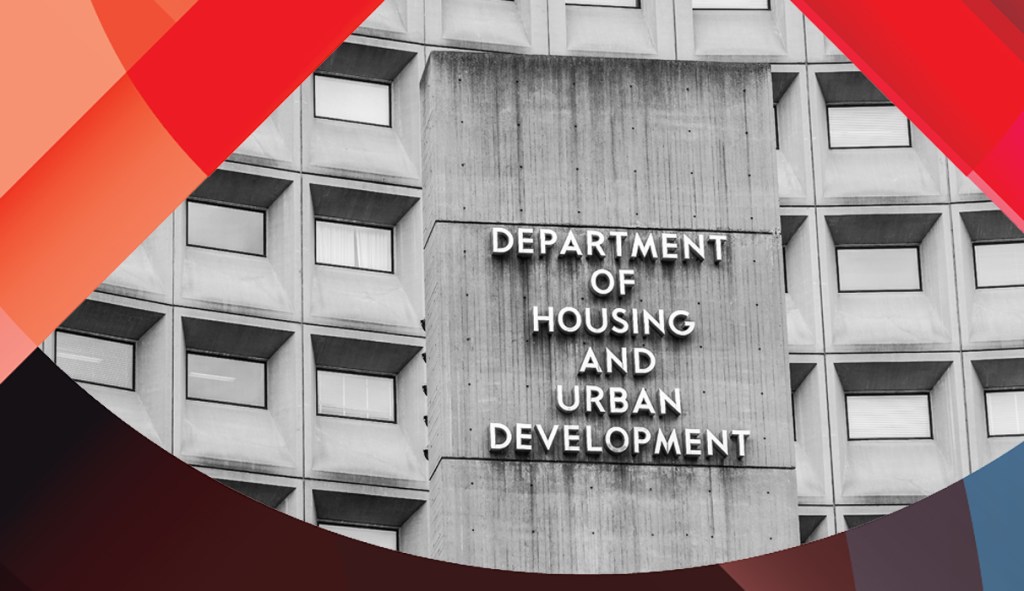
Lakeview Loan Servicing, one of the nation’s largest issuers of Ginnie Mae securities, is making a play in the private-label securities market by sponsoring an offering backed by a pool of 2,192 Federal Housing Administration-guaranteed mortgages valued at $423.6 million.
The offering, via a conduit called Lakeview Trust 2022-EBO1, is a rare transaction involving mostly delinquent mortgages, according to Kroll Bond Rating Agency’s (KBRA’s) report on the offering, which is slated to close March 15.
“The [current Lakeview] transaction is the fourth publicly rated non-agency securitization of its kind to be introduced to the market in over a decade,” KBRA’s report noted.
Two similar past issuances, one in 2015 and another last year, also were sponsored by Lakeview, according to a US Bank trust investor report. A fourth such transaction, a $370.7 million offering of nonperforming Federal Housing Administration (FHA) loans, closed this past July and was sponsored by Waterfall Victoria Master Fund, with Carrington Mortgage Services acting as the loan servicer, according to a separate KBRA ratings report.
The bulk of the mortgages (97%) in Lakeview’s current private-label securities (PLS) offering involve FHA-insured mortgages 90 days or more past due that have been purchased out of Ginnie Mae (GNMA) loan pools via the agency’s early buy-out, or EBO, program.
“EBO strategies are expected to become more prevalent as a function of the size of the overall GNMA market,” the KBRA report analyzing Lakeview’s pending offering stated, “with GNMA outstanding MBS [mortgage-backed securities] at approximately $2.1 trillion in 2021 vs. approximately $400 billion in 2007.”
Ginnie Mae makes it possible for lenders to originate qualifying mortgages that they can then securitize through the government-sponsored agency. Ginnie, however, guarantees only the principal and interest payments to purchasers of its bonds, which are sold worldwide.
The underlying loans carry guarantees, or a mortgage insurance certification, from the housing agencies approving the loans — which include single-family mortgages backed by the FHA, the Department of Veterans Affairs and the U.S. Department of Agriculture.
Under Ginnie’s EBO program, after the mortgages acquired by lenders become current for six consecutive months, often through modifications, they are eligible to be re-securitized as part of a new Ginnie Mae loan pool.
“Once a loan goes 90 days delinquent, and the servicer has made two [required] principal and interest advances, Ginnie Mae allows the [servicer] to buy that loan out at par,” said Tom Piercy, managing director of Incenter Mortgage Advisors. “The benefit of this a [the lender] immediately stops advancing the principal and interest each month.
“If I [as the owner of the loan] can get the borrower to make six monthly payments in a row, then I can reissue that loan into a Ginnie Mae security. And what am I getting? A 103% to 105% [potential return], and I bought it out at par [100% of face value].”
That reperforming path and subsequent Ginnie Mae re-pooling represents the highest income-generating potential for the EBO offering, given it provides six months of uninterrupted payments on the pooled mortgage and the option for a cash-out of the loan at the end of that period via the Ginnie Mae re-securitization.
“KBRA generally views the reperforming path as the most beneficial to the transaction as it is generally the shortest resolution path,” the bond-rating report stated.
The downside risk is an ultimate loan default, kicking in the underlying loan insurance provided through FHA, which is part of the U.S. Department of Housing and Urban Development (HUD). Although principal recovery is guaranteed through FHA in the event of a default, there often is a bureaucratic time lag in obtaining interest due, KBRA noted.
In addition, interest rate recoveries are at the HUD debenture rate, “which is typically substantially below the loan note rate,” according to KBRA.
“There is a time lag for obtaining such interest recoveries, creating associated negative carry,” the KBRA report explained. “The portion of unreimbursed expenses for typical foreclosure expenses, including property preservation and attorney’s fees, can differ depending on servicer competency.”
Lakeview’s EBO private-label offering includes an interest-rate reserve account to cover potential bond-interest shortfalls.
Lakeview is part of the Bayview Companies and a subsidiary of Bayview MSR Opportunity Master Fund LP. It also is an affiliate of Bayview Asset Management, a certified minority-owned and private equity firm with hedge fund holdings.
As of March 6, Lakeview ranked as the third largest issuer of Ginnie Mae securities, controlling 10.5% of the agency’s servicing book of business — with a $210.6 billion portfolio comprised of both new-issuance securitizations and net purchases, according to a recent report from mortgage-data analytics firm Recursion. Ahead of Lakeview at the No. 1 position is Freedom Mortgage, with a 12.9% market share, followed by Pennymac, 11.4%.
For the month of February, however, Lakeview ranked as the second largest issuer of Ginnie Mae securities, with some 16,000 mortgages securitized with a total value of $3.8 billion, according to Recursion. Pennymac ranked first, with 24,000 loans securitized via Ginnie Mae valued at $6.76 billion. Rocket Mortgage was third, with 15,000 loans valued at $3.5 billion — followed by UWM, 8,000 mortgages valued at $2.97 billion; and Freedom Mortgage, 12,000 loans valued at $2.94 billion.
In total for the month, mortgage lenders delivered to Ginnie Mae pools some 476,000 loans for a combined value of $138 billion. Issuance volume, however, was down by $41 billion from January 2022, Recursion reported.





